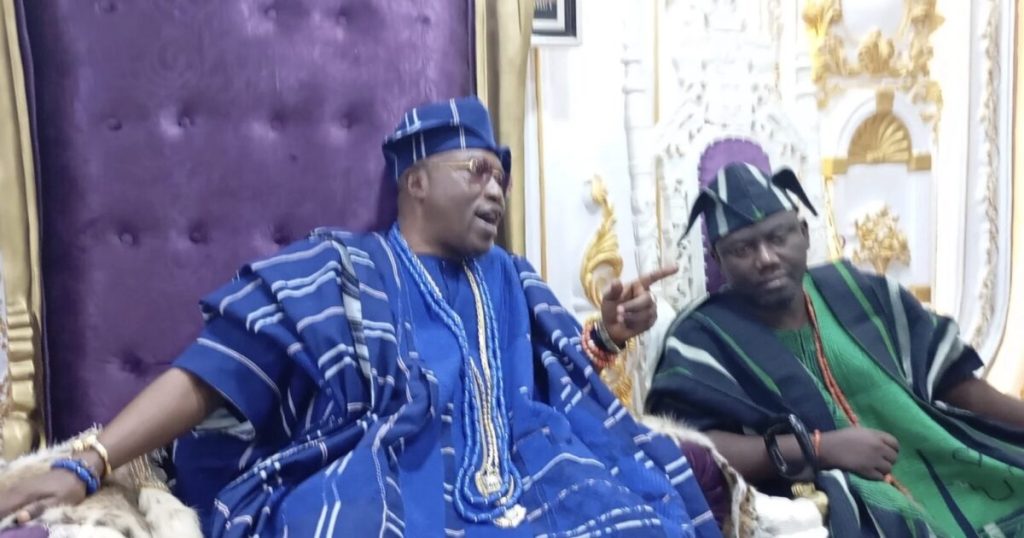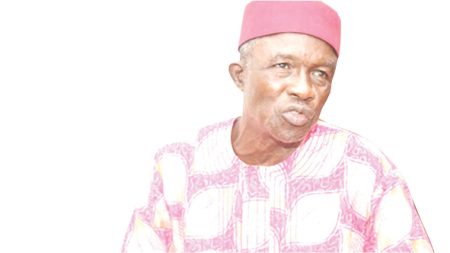The Revered Alaafin: A Symbol of Yoruba Traditional Supremacy
The Yoruba people, a prominent ethnic group in southwestern Nigeria, boast a rich cultural heritage deeply rooted in their traditional institutions. Central to this heritage is the institution of Obaship, with the Alaafin of Oyo occupying a position of unique historical and cultural significance. Recent events involving the Oluwo of Iwoland, Oba Abdulrasheed Akanbi, have brought the Alaafin’s paramountcy to the forefront, highlighting the reverence and respect accorded to this title within the Yoruba traditional hierarchy.
The Oluwo of Iwoland, during a courtesy visit by the Alaafin of Oyo, Oba Lamidi Olayiwola Atanda Adeyemi III’s successor, Oba Abimbola Owoade, publicly acknowledged the Alaafin’s superior status amongst Yoruba traditional rulers. Oluwo’s declaration, "I don’t know any other title in Yorubaland that is superior to the Alaafin," underscored the deeply ingrained perception of the Alaafin as the apex of Yoruba traditional authority. This acknowledgement transcends mere formality, reflecting a historical understanding of the Alaafin’s role as a direct descendant of Oduduwa, the mythical progenitor of the Yoruba people.
The Alaafin’s connection to Oduduwa, the foundational figure in Yoruba cosmology and history, imbues the title with an inherent aura of authority and legitimacy. This lineage, passed down through generations, reinforces the Alaafin’s position as not only a political leader but also a custodian of Yoruba traditions and a spiritual link to the ancestral past. This historical and spiritual significance elevates the Alaafin above other Yoruba traditional titles, solidifying its preeminent position within the cultural landscape.
The recent visit by the Alaafin to the Oluwo of Iwoland further solidified the bond between these two important Yoruba towns. The visit, reciprocating Oluwo’s attendance at the Alaafin’s coronation ceremony, symbolized a mutual respect and recognition of the importance of maintaining harmonious relationships between traditional leaders. This gesture, steeped in Yoruba custom and tradition, reinforces the importance of unity and collaboration amongst Yoruba towns and reinforces the Alaafin’s role as a unifying figure.
The Alaafin’s visit to Iwoland served as a reminder of the historical interconnectedness of Oyo and Iwo, two historically prominent Yoruba kingdoms. This shared history, marked by periods of both alliance and rivalry, underscores the importance of maintaining strong ties between these two influential centers of Yoruba culture. The Alaafin’s emphasis on continuing the strong relationship established by his predecessor, Oba Lamidi Adeyemi III, further cemented the commitment to fostering unity and collaboration amongst Yoruba Obas.
The Oluwo’s public acknowledgement of the Alaafin’s supremacy and the subsequent visit by the Alaafin to Iwoland serve as a powerful testament to the enduring significance of traditional institutions within contemporary Yoruba society. These events reaffirm the Alaafin’s position as not just a traditional ruler, but a symbol of Yoruba unity, history, and cultural heritage. The continued reverence for the Alaafin underscores the vitality of Yoruba traditions and the enduring power of cultural memory in shaping contemporary Yoruba identity. The relationship between the Alaafin and other Yoruba Obas, as exemplified by the interaction with the Oluwo of Iwoland, highlights the importance of interconnectivity and cooperation within the Yoruba traditional system. This intricate web of relationships, built upon mutual respect and a shared commitment to Yoruba cultural preservation, strengthens the fabric of Yoruba society and ensures the continuity of its rich traditions for generations to come.














